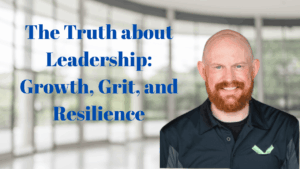
Blog
Notes:
As Sales Engineers, our job is complex, but it’s very hard to do if we don’t stay on top of our learning. Therefore a great skill that we need to develop is continuous learning. Or even more importantly the skill to set time aside for continuous learning or to learn on the fly!
Today’s podcast is an interview with Max Van Burke, Director of pre-sales at Pluralsight for EMEA. EMEA stands for Europe, the Middle East, and Africa. We will cover the topic of continuous learning, how Max tackles it, and what he expects his team to do as well.
If you’re not familiar with Pluralsight, it is a learning website that owns Cloud Guru that I’ve been using on my AWS journey!
Key Takeaways:
- Using the Feynman Technique to learn something new
- How to still be confident in teaching others, despite knowing that some may know more than you do on the topic
- Continuous Learning: Prescriptive Learning vs. Informal Learning. What is it and how do we achieve it?
- How to identify learning priorities and learn as a team
- How do you assess soft and technical skills
- Questions you can use to measure your employee’s soft skills
- Setting time aside to learn
- Customers can guide an SE with what to learn, and a PM with what to build.
Quotes:
“Even though there are tons of people who know more about that than you on the other side, there are millions of people out there who know less than you do” Max van Berk
“The questions I had yesterday and I know today, are the questions I will answer because there’s always someone who doesn’t know, who knows less than me and I can help in one way, shape, or form.” – Ramzi Marjaba
“I also came to the realization that if I say something and you say something, you will reach a certain audience because you speak in one way. I’ll reach a separate audience because I speak differently. So you can have two experts teaching the same thing differently to different people and it works. And between the two of us, we make one whole better teacher.” – Ramzi Marjaba
“People like to talk about themselves and they’re generally passionate about it. And they get to tell you about their hard work and you get to understand the pains that they’re going through. So when you’re trying to help them solve a problem, now you’re discussing their pains, not what you assume is their pain.” – Ramzi Marjaba
“Curiosity really helps you build those skills, understand people better, understand what you’re doing better and the impact you’re having on people. And I think that’s a great motivator behind learning as well.” – Max van Berk
“There’s a thin line between being smart and being a smart A$$ Right. Being smart allows you to actually have conversations and learn from the customer. Whereas the other one, you’re just telling the customer you’re the smart person in the room, you’re gonna tell the customer what to do, and that doesn’t help.” Ramzi Marjaba
“By sharing what courses you’re taking on our own platform or what podcasts you’re listening to, or what books you’re reading, you help build that library of potential learning avenues as a team, and I think that’s quite important. So team learning in general, I think it’s super important.” – Max van Berk
“But still helping someone get better is way more scalable than a single opportunity or a single call, right? If that person gets better than the next 5 calls or 10 calls if you jump in and take over that one call, the next five, 10 or 50 calls will not improve. So it’s, it’s a fine line.” – Max van Berk
“And try things out until, until you get to a point where you think you can, could break that system. And yeah, get an, become an expert by using it actually.” – Max van Berk
“Everything you learn contributes to you being a well-rounded person and professional” – Max Van Berk



